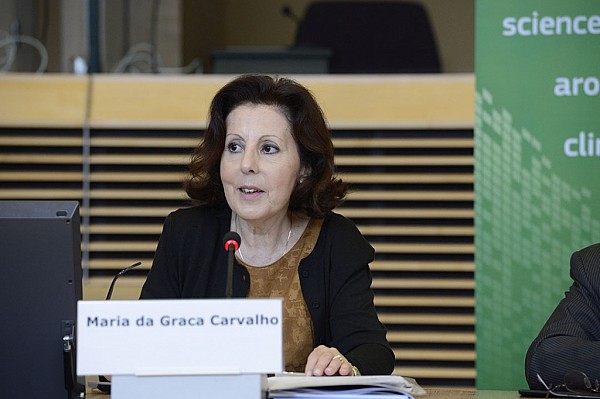Work in Parliament Meeting with Members of the Swiss Parliament
Today, Maria da Graça Carvalho participated in the ITRE meeting between MEPs and a delegation of five Members of the Swiss Parliament, Committee of Education, Research and Culture that has visited the European Parliament and the European Commission in Brussels this week.
The main interest of the Swiss Parliamentarians was the MEP's point of view on the new Research Framework Programme 'Horizon 2020'. Switzerland is an associated member of the Framework Programme with a considerable participation (e.g. in FP 6 Swiss scientists took part in 1900 projects with a total funding of 640 Mio€ as opposed to a financial contribution of 630 Mio€.)
The agenda of the meeting included following items:
- Welcome by ITRE and short introduction of participants;
- Presentation of novelties within Horizon 2020 and position of the European Parliament (ITRE);
- Experiences and outlook on Swiss participation to EU research programs;
- Exchange on priorities of the research policy and presentation by the Swiss Parliament Committees of the Swiss research and innovation system (in particular the proximity to the market and the innovation support).
Swiss participation in EU research programmes
- Swiss researchers from universities and the private sector have been involved in EU research framework programmes since 1987. The number of participants has constantly increased, from FP3 (493 participations for CHF125 million in funding) to FP6 (1916 participations for CHF791 million in funding).
- Following a bilateral agreement with the EU, Switzerland has been associated to EU framework programmes since 2004 (FP6). A similar association agreement signed in 2007 provided for the Swiss participation in FP7.
- The total Swiss contribution for FP7 and Euratom for 2007-2012 amounts to €1.25 billion. By March 2013, 3'277 researchers based in Switzerland had been involved. The main areas of participation are ICT, mobility actions (Marie Curie), Health, NanoMatPro and the ERC.
- With regard to Horizon2020, the Swiss Federal Council (government) has presented Parliament with a bill ("message") requesting CHF 4,4 billion (about €3,55 billion) to take part in the new programme for 2014 to 2020, including the further participation in the construction of ITER. The Lower House of the Parliament already approved this funding. The green light of the Upper House is expected this autumn. This should provide the necessary funding necessary to pay the Swiss contribution to Horizon 2020 once a bilateral agreement to that effect has been negotiated (autumn-winter 2013).
Swiss research landscape:
- Some main characteristics
-
- Prioritized and stable financing of research and innovation;
- Strong "bottom-up" focus, very limited "top-down" thematic focus;
- Over-average growth of competitive funding rate 2008-2016 (5,1% per year);
- 68% of the funding from private industries, 23% from federal or regional authorities, 6% from foreign sources and 3% other.
- Recognized as a leader in European and worldwide innovation rankings, Switzerland has a strict policy of supporting an enabling environment for innovation whilst not funding any direct research and innovation activities of the private sector.
- Swiss Institutions of Higher Education enjoy a great level of autonomy and have a strong international profile. They regularly rank among the world's best. They are hosting more than 30,000 international students and 50% of the PhD students are coming from abroad. Moreover, 45% of the professors are also international.
- Switzerland is a member and contributes to all the eight large European Intergovernmental Research Organisations members of EIROforum: ESA, CERN, ESO, EMBL, ESRF, ILL, X-FEL and EFDA (ITER). Switzerland also invests heavily into national research infrastructures accessible to foreign partners, such as SwissFEL, Swiss Light Source, CSCS (high performance computing) and others.
